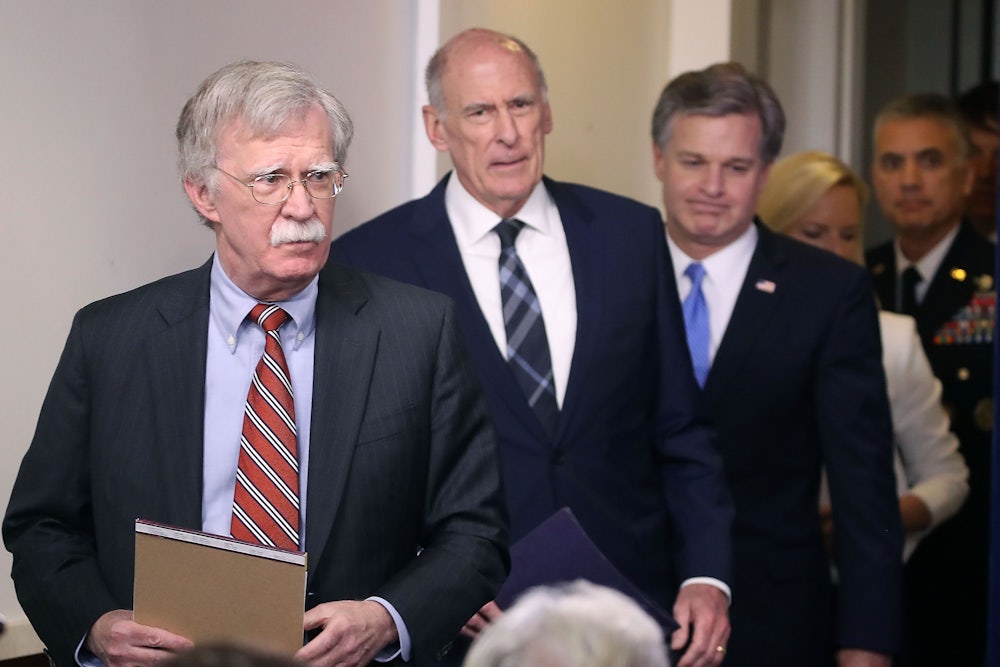One of the striking features of the Trump era is that the president is often at odds with the actual policies his government is carrying out, perhaps most strikingly on the issue of Russian interference in American politics. Speaking at rally in Pennsylvania on Thursday, Trump re-iterated his view that the Russia story is a hoax. “In Helsinki, I had a great meeting with Putin,” the president said. “We discussed everything.... We got along really well. By the way, that’s a good thing, not a bad thing. Now we’re being hindered by the Russian hoax—it’s a hoax, OK?”
Earlier that same day, Trump’s national security team met in the White House and gave a briefing presenting a very different view of the matter. Dan Coats, the director of National Intelligence, said, “We continue to see a pervasive messaging campaign by Russia to try to weaken and divide the United States.”
The disconnect between Trump and Coats follows a familiar pattern of the president directly contradicting the policy his government is enacting. The same disconnect can be seen in America’s relationship with European allies and other issues. As The New Republic’s Matt Ford pointed out, government officials often act as if they are carrying out their own agenda, one that has nothing to do with the president’s stated intent.
One of this era's weirdest features is that major parts of the federal government are running on autopilot for now. https://t.co/A9KaQFzfJ5 pic.twitter.com/6cDHJzNL6Y
— Matt Ford (@fordm) August 2, 2018
I mean, imagine if the WH or State Dept. had just straight-up ignored an unambiguous public declaration from Bush or Obama.
— Matt Ford (@fordm) August 2, 2018
It's not just them, either. This has basically been DOJ's policy for the last year and a half re: the travel ban (unless there's a new EO) and the Russia investigation.
— Matt Ford (@fordm) August 2, 2018
The United States is fortunate that this unusual situation has yet to produce a serious crisis. For now, Trump is content to be a figurehead president who barks out orders at rallies and in Tweets, while his administration disregards his words. But this situation could easily lead to chaos, especially in foreign policy where mixed messages could spark conflict.
